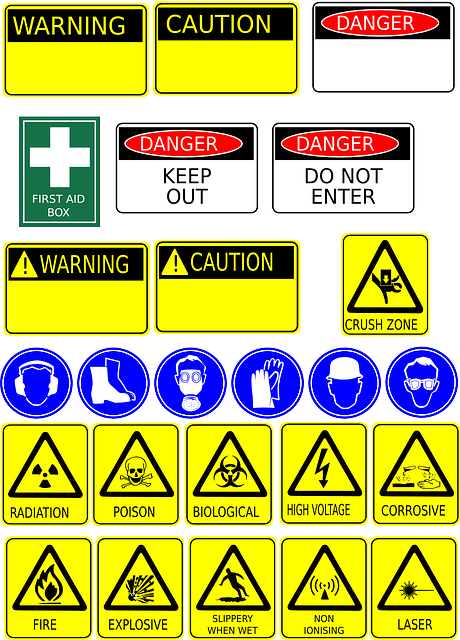In a competitive and regulated retail sector, prioritizing employee integrity through comprehensive background checks is vital. These checks go beyond basic hiring procedures to enhance customer safety and prevent retail theft by verifying staff credentials, assessing vulnerabilities, and identifying red flags of dishonesty or criminal behavior. Effective screening involves checking employment history, education, certifications, and criminal records, fostering trust, mitigating risks, ensuring legal compliance, and maintaining operational efficiency through accountability. By implementing robust background verification, retailers can protect customers, safeguard sensitive information, and solidify their market position in a competitive landscape.
Retail operations face unique challenges in maintaining integrity and ensuring customer safety. Background checks play a vital role in retail industry compliance, acting as a robust defense against potential risks. This article explores the significance of retail background verification in screening employees, preventing retail theft, and upholding customer trust.
From understanding essential checkpoints to implementing effective systems, we delve into strategies for retail businesses to safeguard their operations and thrive in a competitive market while prioritizing employee integrity and customer safety checks.
- Understanding the Importance of Retail Background Checks
- Retail Employee Screening: What to Look For
- Customer Safety and Retail Industry Compliance
- The Role of Background Verification in Preventing Retail Theft
- Verifying Retail Staff Credentials Effectively
- Implementing a Comprehensive Retail Background Check System
Understanding the Importance of Retail Background Checks

In the dynamic landscape of retail, where customer satisfaction and security are paramount, understanding the importance of background checks for retail employees cannot be overstated. Retail background verification goes beyond mere hiring; it’s a crucial strategy to ensure regulatory compliance, safeguard customers, and prevent retail theft. Effective screening processes help retailers mitigate risks by evaluating potential vulnerabilities, verifying staff credentials, and identifying red flags that might indicate dishonesty or past criminal activity.
Retail employee screening is not just about checking boxes; it’s an investment in the integrity of your workforce. By implementing robust background check procedures, retailers can foster a culture of trust and accountability. These checks serve as customer safety checks, ensuring that those interacting with clients have a proven track record and pose no potential threats. In a industry where inventory management and client interactions are key, retail staff credentials verified through comprehensive background verification become essential tools in maintaining operational efficiency and upholding legal requirements for retail industry compliance.
Retail Employee Screening: What to Look For

Retail employee screening is a critical component of maintaining integrity and ensuring customer safety in the retail industry. When conducting background checks for retail employees, several key areas should be explored to ensure regulatory compliance and mitigate potential risks.
During retail background verification, it’s essential to verify staff credentials, including previous employment history, education, and any relevant certifications. Additionally, checking for criminal records through comprehensive consumer reports helps in identifying potential red flags related to retail theft prevention. By implementing thorough customer safety checks, retailers can protect their assets and create a secure shopping environment. These checks should also extend to verifying identification documents and assessing basic employability criteria to rule out any disqualifying factors that might impact retail industry compliance.
Customer Safety and Retail Industry Compliance

In the dynamic and often high-pressure retail environment, ensuring customer safety is paramount. Background checks for retail employee integrity play a pivotal role in maintaining regulatory compliance and fostering a secure shopping experience. Retail employee screening processes, including comprehensive background verification, are essential tools to identify potential risks and prevent incidents that could compromise customer well-being. By verifying staff credentials, retailers can mitigate the chances of retail theft, ensure responsible handling of sensitive information, and create a safe haven for both employees and patrons alike.
Retail industry compliance is not just about adhering to legal requirements; it’s about building a robust defense against internal threats. Customer safety checks, integrated into thorough background verification, act as a shield against fraudulent activities, violent behavior, or any actions that could disrupt the harmonious retail experience. Retailers who prioritize these checks not only protect their assets but also contribute to building trust with their customers, solidifying their position in a competitive market.
The Role of Background Verification in Preventing Retail Theft

Background checks and retail employee screening play a pivotal role in maintaining integrity within the retail industry. By conducting thorough background verification, retailers can ensure that their staff are reliable and trustworthy, thereby enhancing customer safety checks. This process involves verifying the identity, employment history, and criminal records of prospective employees to safeguard against any potential risks or red flags.
Retail background checks are an essential tool in retail industry compliance, helping to prevent retail theft and other security breaches. By screening retail staff credentials, retailers can identify individuals with a history of dishonesty or those who might pose a threat to the business and its customers. This proactive approach to retail employee integrity fosters a secure shopping environment, ultimately contributing to the overall success and profitability of the retailer.
Verifying Retail Staff Credentials Effectively

Effective retail background checks are pivotal for maintaining integrity and ensuring customer safety in the highly competitive retail industry. Retail employee screening goes beyond simple resume reviews to uncover potential red flags and verify staff credentials. This rigorous process involves comprehensive background verification, encompassing employment history, criminal records, and reference checks, to weed out individuals with a history of dishonesty or violence that could compromise store security and customer well-being.
Retail theft prevention is a significant motivation for robust background checks. By scrutinizing applicants’ past behavior, retailers can minimize the risk of hiring individuals prone to stealing from the store. Moreover, these checks contribute to regulatory compliance, as many regions mandate specific customer safety checks and retail industry compliance standards, ensuring that businesses operate ethically and responsibly.
Implementing a Comprehensive Retail Background Check System

Implementing a comprehensive background check system for retail employees is an essential step in ensuring regulatory compliance and enhancing customer safety. Retail Background Checks go beyond basic employment verification, delving into an individual’s criminal history, previous employers, and other relevant information to uncover potential risks. By integrating advanced screening methods, retailers can mitigate the chances of hiring individuals with a history of fraud, theft, or violent behavior, thereby reducing the risk of retail loss and enhancing staff integrity.
This process involves rigorous retail employee screening, including verifying credentials, checking references, and conducting comprehensive background verification. Retailers should focus on identifying red flags that might indicate a candidate’s propensity for dishonesty or misuse of company resources. Effective customer safety checks are pivotal in the retail industry, where compliance with local laws and regulations is paramount. By adopting robust practices, retailers can foster a secure shopping environment, build trust with customers, and uphold their reputation as responsible business leaders.






